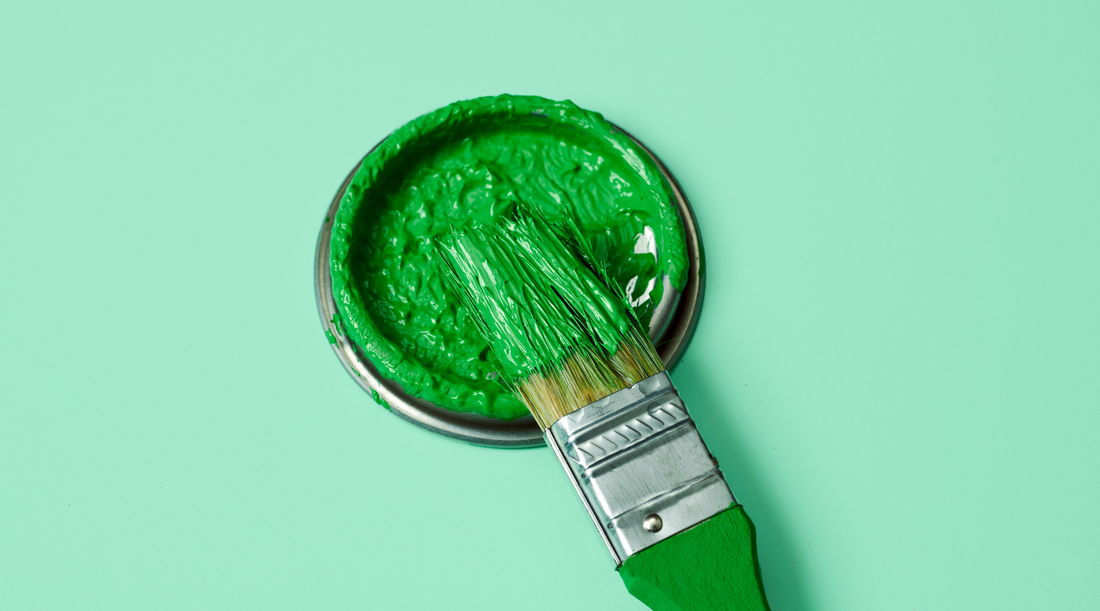greenwashing
[grēn′wŏsh′ĭng] noun
- Is a term used to describe the marketing tactics used by beauty brands to advertise their new, supposedly 'clean' or 'natural' lines of skincare.
- The process of conveying a false impression or providing misleading information about how a brand's formulas and packaging are more non-toxic, plant-based, or sustainable than they truly are.
My journey to creating Skin Botanist didn’t start in a lab or a clinic. For years, I worked in corporate communications, but behind the scenes, I was fighting a personal and frustrating battle with my own skin.
I was completely disillusioned with the conventional beauty industry. I felt fed up with the harsh chemicals, the confusing labels and the empty promises from big brands that never seemed to deliver. This frustration sparked a personal quest to understand the science behind skincare, and I became fascinated by the incredible, transformative power of plant-based ingredients.
This journey led me to create Skin Botanist, a brand built on the honesty and transparency I felt was so desperately missing in the beauty world. I know firsthand how overwhelming it can be to navigate the noise, especially when terms like 'natural' are thrown around so loosely. That’s why I wanted to cut through the confusion and answer some of the most common questions we get. Consider this a straightforward chat to help you feel confident and empowered in the choices you make for your skin.
1. Is "natural" skincare actually as effective as synthetic options?
This is a common and valid concern. The truth is, natural skincare isn't just about being gentle - it's about being effective without compromise. Many conventional products use synthetic ingredients to create immediate but often superficial results, like a foaming sensation that can actually strip the skin. Natural ingredients, on the other hand, are often rich in antioxidants, vitamins, and minerals that work in harmony with your skin's own processes. Potent botanicals, fruits, and herbs have been used for centuries for their skincare benefits. Think of powerful ingredients like Rosehip Oil for brightening or Shea Butter for deep hydration. Nature provides effective solutions for a variety of skin concerns.
2. I have sensitive skin. Are all natural ingredients safe for me?
Not necessarily. It's a common misconception that "natural" automatically means safe for everyone. Just like with any skincare, some natural ingredients can cause allergic reactions or irritation, especially for those with sensitive skin or specific allergies. For example, some people may react to certain essential oils or plant extracts. That's why it's crucial to always patch-test new products before applying them to your entire face. However, many natural skincare products are specifically formulated to be gentle, using ingredients like Aloe Vera and Calendula that are less likely to cause adverse reactions.
3. What's the difference between "natural" and "organic" skincare?
These terms are often used interchangeably, but they have different meanings. "Natural" generally means the ingredients are sourced from nature rather than being created synthetically in a lab. "Organic" takes it a step further, indicating that the natural ingredients were grown without the use of synthetic pesticides, fertilisers, or GMOs, according to specific farming standards. So, while all organic products are natural, not all natural products are organic. It's also important to be aware of "greenwashing," where brands use terms like "natural" for marketing without their formulas being genuinely free of synthetic ingredients.
4. Why do natural skincare products often have a shorter shelf life?
Natural skincare products typically have a shorter shelf life because they use natural preservatives instead of synthetic ones. Preservatives are necessary in any product that contains water to prevent the growth of bacteria and mould. While natural preservatives are effective, they may not preserve a product for as long as their synthetic counterparts. An unopened natural product can last for a couple of years, but once opened, it's best to use it within six to twelve months, depending on the formulation. Oil-based products that don't contain water are less prone to bacterial growth and may have a longer shelf life.
5. What are some examples of natural preservatives?
There are several effective natural preservatives used in skincare. These include antioxidants like Vitamin E (tocopherol) and rosemary extract, which help prevent oils from spoiling. Another option is grapefruit seed extract. These natural alternatives help keep your products safe and stable without the need for synthetic additives.
6. Why can natural skincare be more expensive?
The cost of natural skincare can vary, but several factors can contribute to a higher price point. High-quality natural and organic ingredients can be more expensive to source and cultivate, especially if they are grown sustainably. The manufacturing processes for natural skincare are often more labour-intensive and done in smaller batches. Additionally, obtaining certifications to prove a product's organic or natural status can add to the overall cost. In our case, because we don't use cheap fillers and instead use large quanities of the key ingredients, you are getting a more concentrated formulation that lasts.
7. I've heard some natural ingredients can clog pores. Is this true?
While many natural ingredients are beneficial, some can be comedogenic, meaning they have the potential to clog pores. For example, coconut oil is a popular natural moisturiser, but it is known to be highly comedogenic and may not be suitable for use on the face for those prone to breakouts. However, many other natural oils, like Jojoba Oil, are ideal for oily skin because they closely mimic the skin's natural sebum. It's all about choosing the right natural ingredients for your specific skin type and concerns.
8. Will I see results with natural skincare immediately?
The effectiveness of any skincare product, natural or synthetic, depends on its formulation and the concentration of active ingredients. While some natural ingredients can provide immediate soothing or hydrating effects, others work over time to support your skin's health. Natural ingredients work in harmony with your skin's natural processes and true effectiveness is about how well a product supports your skin long-term, not just how it feels on the surface.
Your skincare should be a source of confidence, not confusion. I hope this guide helps you on your journey to finding a routine you absolutely love, works for you, and reflects your values.


1 comment
Such an important read …when i started to take more notice of ingredients small print on the back of packaging of many skin products , I had no idea what they are and why it’s so complicated ….your explanation is so informative …..thank you